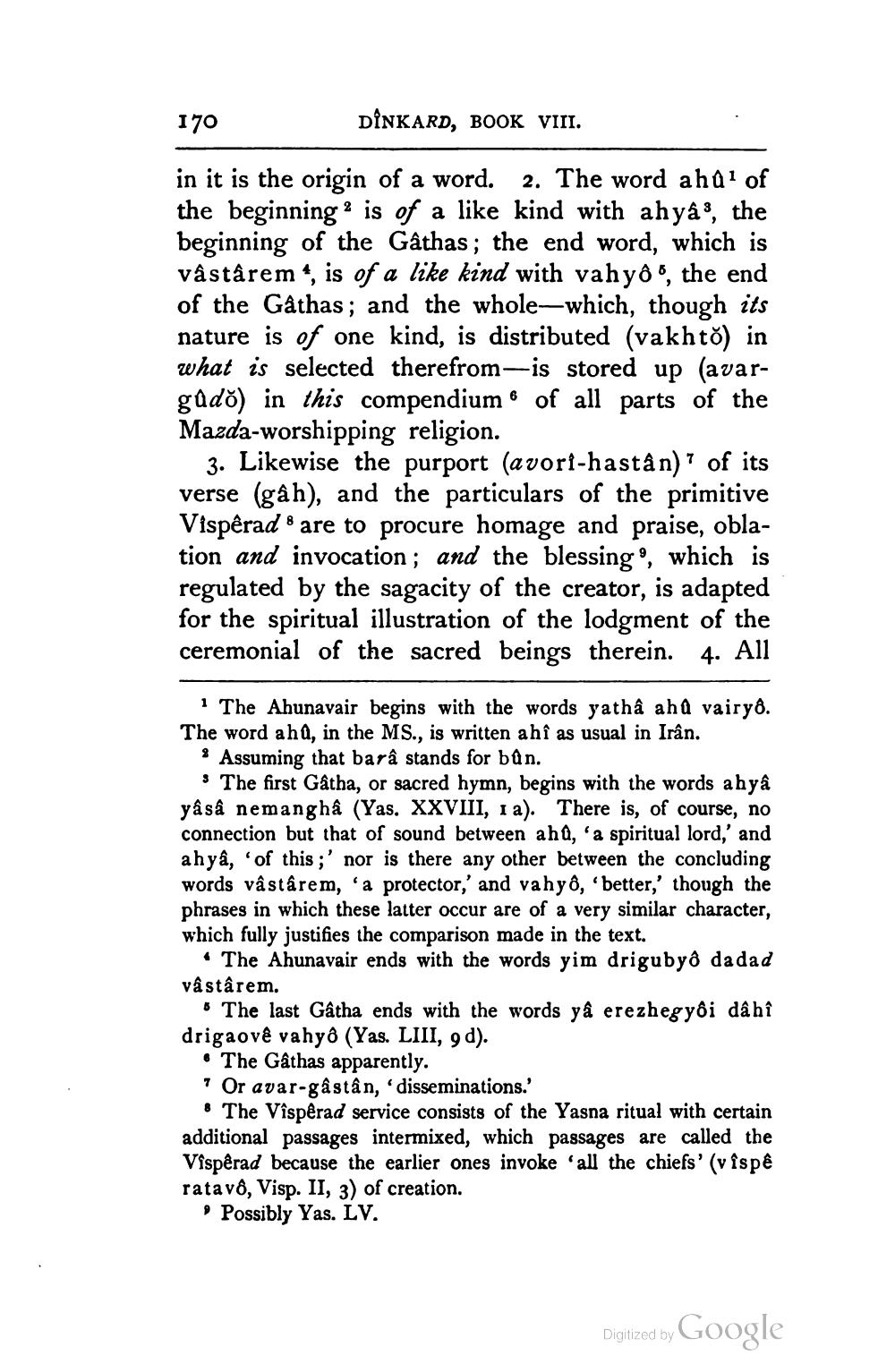________________
170
DÎNKARD, BOOK VIII.
in it is the origin of a word. 2. The word ahal of the beginning ? is of a like kind with ahya, the beginning of the Gâthas; the end word, which is vâstârem*, is of a like kind with vahyô", the end of the Gathas; and the whole—which, though its nature is of one kind, is distributed (vakhto) in what is selected therefrom-is stored up (avargado) in this compendium 6 of all parts of the Mazda-worshipping religion.
3. Likewise the purport (avori-hastân)? of its verse (gâh), and the particulars of the primitive Vispêrad 8 are to procure homage and praise, oblation and invocation; and the blessing”, which is regulated by the sagacity of the creator, is adapted for the spiritual illustration of the lodgment of the ceremonial of the sacred beings therein. 4. All
1 The Ahunavair begins with the words yatha aha vairyo. The word a hū, in the MS., is written ahi as usual in Iran.
Assuming that bara stands for bûn. * The first Gatha, or sacred hymn, begins with the words a hya yâsâ nemangha (Yas. XXVIII, I a). There is, of course, no connection but that of sound between aha, 'a spiritual lord,' and a hyâ, 'of this;' nor is there any other between the concluding words vâstârem, 'a protector,' and va hyô, 'better,' though the phrases in which these latter occur are of a very similar character, which fully justifies the comparison made in the text.
• The Ahunavair ends with the words yim drigubyo dadad vâstârem,
The last Gâtha ends with the words yâ erezhegyôi dâhî drigaovê vahyo (Yas. LIII, 9 d).
• The Gathas apparently. ? Or avar-gâstân, 'disseminations.'
• The Vîspêrad service consists of the Yasna ritual with certain additional passages intermixed, which passages are called the Vispêrad because the earlier ones invoke all the chiefs' (vîspê ratavô, Visp. II, 3) of creation.
Possibly Yas. LV.
Digitized by Google




